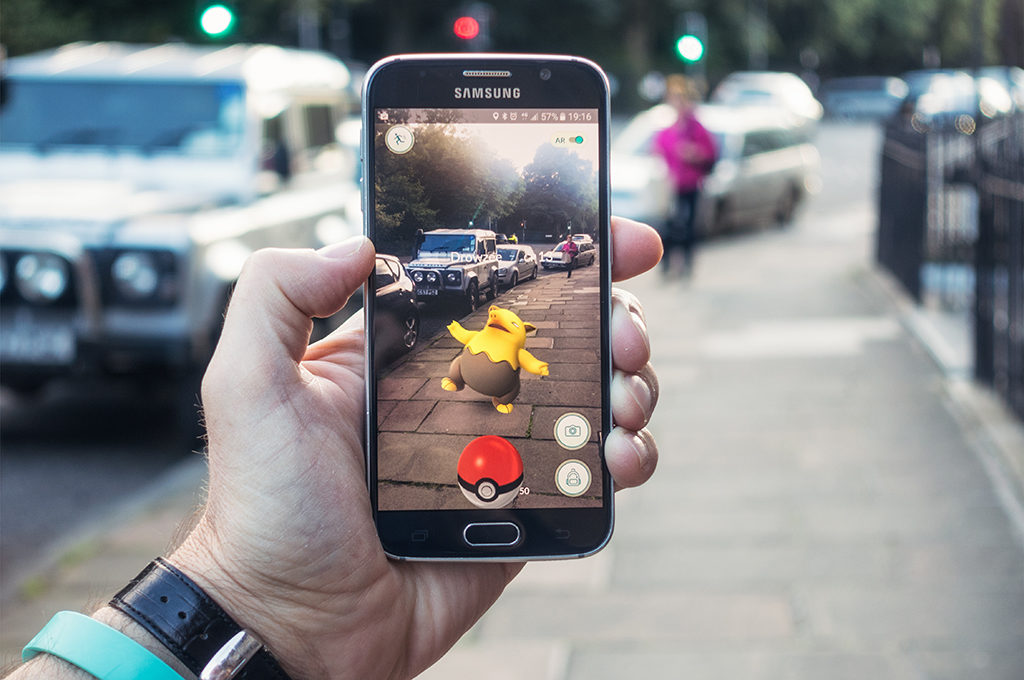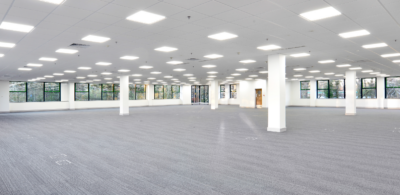Pokémon Go is literally everywhere. It’s so widespread that a growing movement in China is concerned about users stumbling across covert military installations, and there’s a Pokémon gym at the Pentagon. Jokes about defending secret fortresses from foreign invaders aside, the implications of pursuing virtual supremacy in some of the world’s most secure buildings are as many and varied as there are types of pocket monsters (722, to be precise). Whether this augmented reality explosion is a “hey you, kids, get off my lawn!” situation or an incredible opportunity depends on who you ask. Barely more than a month old, retailers are already clamoring to cash in on the phenomenon and convert foot traffic into paying customers. As Boon Sheridan found when he learned his converted-church residence is a major gameplay site, sometimes new technology has growing pains. Being prepared for errant trainers wandering around properties you manage can mean the difference between a potentially embarrassing or frustrating interaction and an entertaining diversion in the middle of a long week.
Plus: Will Apple’s New Flagship Take a Bite Out of Traditional Retail? | CRE is connecting with the future
Pokémon show up where people congregate, and the presence of the little creatures inevitably leads to a mass of players stumbling about with their phones out. It’s difficult to predict their appearance more precisely than that, as Niantic employs a proprietary algorithm to whimsically spit out virtual warriors everywhere. This makes office buildings, mixed-use assets, and other places that bring people together popular game territory. The unintended consequences of players wandering into slightly—or dramatically – inappropriate areas aren’t hard to imagine. And aside from asking politely, there isn’t much that can be done to stop people from playing entirely. That being said, Niantic accepts requests to remove gym and Pokéstop designations from dangerous or private locations. But those wanting to capitalize on shifting trends might be wise to welcome players, even if just for a moment of employee recreation. When CDW moved in to Principal’s Tri State International center [Lincolnshire, IL], for example, they built stylish, attractive common areas that they want people to use. To start, a few dollars a day spent on lures to help spawn Pokémon can go a long way towards drawing in players.
Also: Four essentials for collaboration and innovation | Will technology replace commercial real estate brokerage?

CDW’s common area. Are Pokémon lurking nearby?
Love the Pokémon Play-ah, Live the Game
Lots of interest in popular internet-based apps is speculative. Even years after inception, many companies struggle to find successful monetization strategies. This isn’t the case with Pokémon Go: Its alarming success virtually guarantees steady in-game revenue, and the data Niantic, Inc. collects is a veritable treasure trove of consumer habits waiting to be sold. Retailers, on the other hand have to figure out how to turn screen-obsessed zombies into customers, and promotions must be carefully evaluated to avoid sounding like blatant cash grabs: Millennials, the game’s target demographic, are notoriously savvy when it comes to sniffing out authenticity. The best way to think up creative draws may be to start playing yourself and ask what would put a smile on your face. Locations lucky enough to be Pokéstops or gyms could experiment with creating a sense of community by posting signage with vital statistics or virtual leaderboards. One brokerage agency even went as far as to hide small plush Pokémon inside vacant suites to encourage touring: Any broker who found the elusive stuffed creature would receive a sizable travel voucher as a reward. In this uncharted territory, innovation will be rewarded.
Trespassers Will Be … Tolerated?
Perspective is an easy thing to lose. Occasionally a real-world argument will break out over the game or somebody will step in to traffic, making headlines and validating curmudgeons everywhere. It is, however, just a game and the overwhelming majority of players are normal people out having fun. It’s a timely reminder, though, not to react to wandering visitors with prejudice. While on-site security probably won’t rough anybody up, anything beyond a friendly reminder to respect private property is probably excessive. Access-controlled areas should be relatively immune to the so-called Pokémon Effect, but brief your security and reception personnel on how to handle curious guests. Remember that gameplay is not limited to kids, which means you never know who you’ll run into. A courteous exchange will go a long way towards developing a favorable image for your business, while a bad one could set off a cascade of unintended consequences. It’s not likely, but stranger things have happened.
Of course, after all the fuss dies down, it may turn out that Pokémon Go is just a flash in the pan. Video game platforms often enjoy far greater success than single titles. Regardless, Niantic, Inc. and Nintendo have a lot to celebrate, having already enjoyed tremendous success in their collaboration. Augmented reality is likely to see increased development in the near future thanks to their efforts, and companies scrambling to duplicate their formula will dilute the field and drive innovation. If nothing else, it should be treated as a case study on 21st century product development: Don’t try to “be the next (insert trend/company/product of the day here).” Instead, blaze a unique path. The results may just be surprising.
Now, about that gym in the White House …
A mentor, a real estate executive and a mom, Karen spends time all over the map. If she isn’t traveling, Karen is busy with everything from IREM to Virginia Tech’s Real Estate program. When she has a few minutes to spare, she considers it a personal mission to find new homes for all of Lucky Dog Animal Rescue’s four-legged companions.

 Karen Whitt
Karen Whitt

 Aaron Jodka
Aaron Jodka
 Amber Merrigan
Amber Merrigan
 Andrew Steele
Andrew Steele